The 15 Strange Reason Americans Are Skipping Greece This Year

Greece has long been a dream destination for American travelers, attracting visitors with its ancient ruins, stunning islands, and Mediterranean cuisine.
However, this year, many Americans are rethinking their travel plans and crossing Greece off their vacation lists for some unexpected reasons. Despite its beauty, the country is experiencing a significant drop in American tourism, as travelers reconsider their choices due to a mix of rising costs, over-tourism, and logistical challenges.
As the landscape of travel shifts, Greece’s allure faces new obstacles that may reshape future vacation plans.
1. Summer Wildfires Raise Concerns
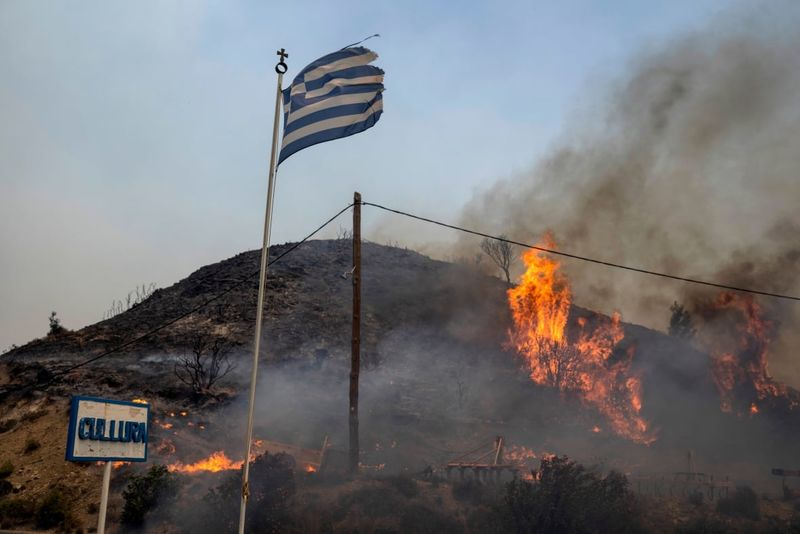
Recent news about devastating wildfires across Greek islands has scared off potential visitors. Watching footage of evacuations from Rhodes and Corfu last summer left a lasting impression on safety-conscious travelers.
Many Americans are now looking elsewhere for their Mediterranean fix, unwilling to risk vacation plans going up in smoke. Travel insurance companies have even adjusted their policies regarding fire-related cancellations in Greece.
Climate scientists predict these fire patterns may continue, making summer trips increasingly unpredictable. The Greek government is working to improve firefighting capabilities, but rebuilding tourist confidence will take time.
2. Rising Tourism Costs in Popular Spots
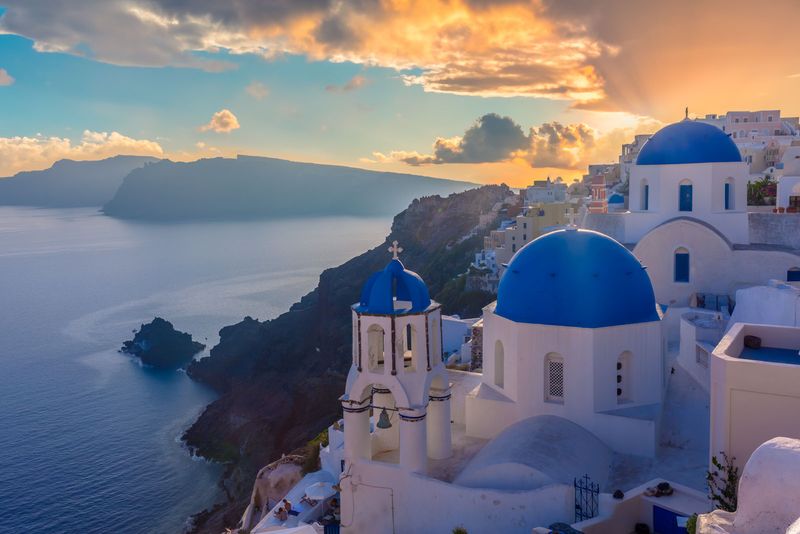
Athens and Santorini have become shockingly expensive for American travelers. Hotel rates in prime locations have jumped nearly 40% compared to pre-pandemic prices, while restaurant meals cost almost double what they did three years ago.
If you’re dreaming of that perfect caldera view room, prepare for sticker shock – some premium accommodations now command $1,000+ per night during peak season. Many Americans report feeling priced out of the authentic Greek experience.
Budget-conscious travelers are discovering they can enjoy similar Mediterranean charm in less expensive countries like Albania, Turkey, and parts of Croatia for a fraction of the cost.
3. Heatwaves Affecting Travel Plans
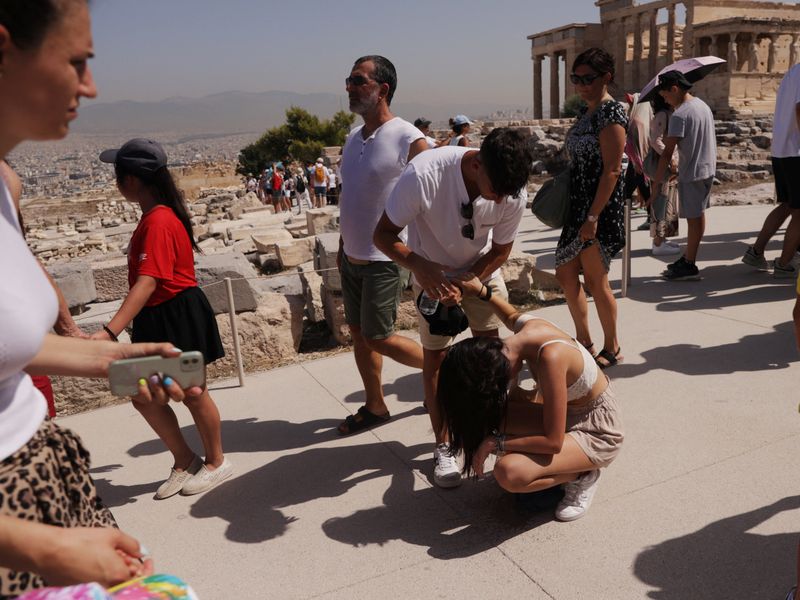
Record-breaking temperatures across Greece have made sightseeing unbearable for many visitors. Last summer, thermometers hit 113°F in Athens, forcing the Acropolis to close during midday hours when the marble literally became too hot to touch.
Americans accustomed to air conditioning everywhere have struggled with the heat in smaller towns and islands where cooling systems aren’t standard. Several tourists required medical attention for heat-related illnesses last year.
Travel forums are filled with stories of vacations ruined by unexpected heat. The traditional high season months of July and August are increasingly being avoided in favor of spring or fall visits when temperatures are more manageable.
4. Overcrowding in Iconic Destinations
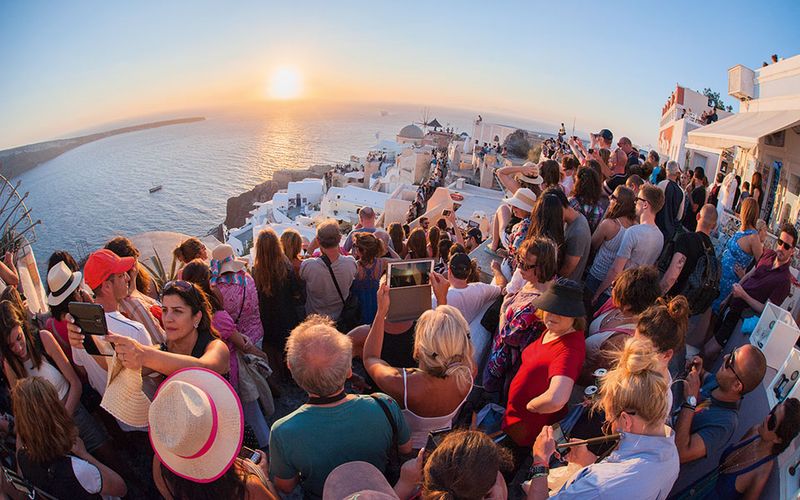
Santorini’s famous sunset spots now resemble concert venues more than romantic viewpoints. Visitors report waiting hours for the perfect photo opportunity only to be jostled by selfie sticks and influencer photoshoots.
Cruise ships disgorging thousands of passengers simultaneously have transformed once-charming villages into human traffic jams. Locals in places like Oia have largely abandoned their traditional neighborhoods during peak season, fundamentally changing the authentic character that attracted visitors.
Americans increasingly mention “overtourism” as a reason to avoid Greece. Social media groups dedicated to alternative destinations with similar aesthetics but fewer crowds have gained thousands of members seeking the Greece experience without the Greece crowds.
5. Limited Availability of Accommodations

Trying to book a Greek vacation less than six months in advance has become nearly impossible in popular areas. The best properties are reserved a year ahead, forcing spontaneous travelers to settle for overpriced mediocre options.
Many Americans report frustration with finding family accommodations, as most traditional Greek hotels offer limited space. The vacation rental market has also tightened, with prices skyrocketing and minimum stay requirements extending to 7+ nights even in shoulder seasons.
Several travel forums now feature dedicated threads helping disappointed travelers find alternatives after discovering their dream Greek getaway is fully booked. For Americans used to last-minute travel deals, this planning requirement has become a significant deterrent.
6. Unpredictable Flight Schedules
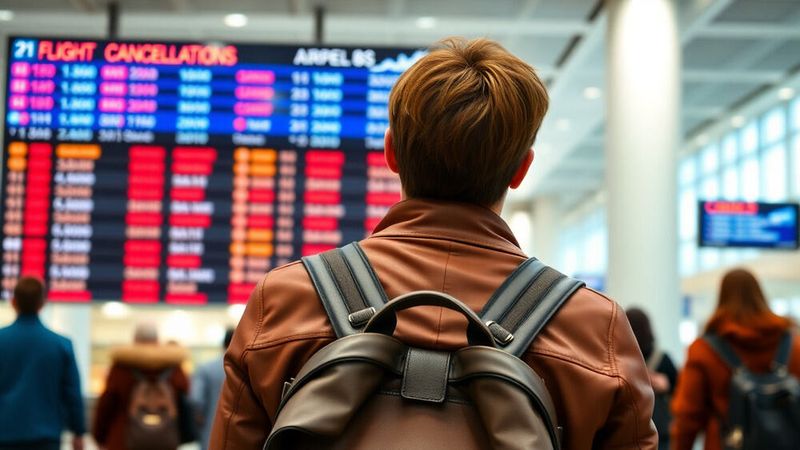
Flight reliability to Greek destinations has reached an all-time low. Many Americans report multiple schedule changes before departure, with some flights canceled entirely just weeks before travel dates.
Direct routes from major U.S. cities are limited and extraordinarily expensive, often exceeding $1,500 round-trip in economy. Connecting through European hubs adds stress and uncertainty, with missed connections becoming increasingly common due to airport staffing shortages.
Horror stories about 24-hour delays reaching Greek islands have proliferated on travel forums. The complicated logistics of reaching destinations beyond Athens have convinced many travelers to choose countries with more reliable air service and better contingency options if things go wrong.
7. Increased Tourism Tax Implementation

Greece quietly doubled its tourist tax in 2023, catching many Americans off guard. The new fees add up quickly, especially for families staying at higher-end accommodations where the daily tax can reach €20 per room.
Most frustrating for travelers is discovering these taxes must be paid in cash directly to hotels, even when rooms were prepaid online. ATM withdrawal limits and fees create additional headaches for unprepared visitors.
Travel agents report clients specifically requesting destinations without these extra fees. While the tax increase helps fund infrastructure improvements, the implementation has alienated budget-conscious travelers who feel nickel-and-dimed throughout their stay.
8. Language Barriers in Remote Areas

Americans venturing beyond tourist hotspots face unexpected communication challenges. While English is common in major destinations, travelers to authentic villages report significant language barriers that complicate everything from ordering food to finding bathrooms.
The Greek alphabet poses an additional challenge for independent travelers trying to navigate road signs or bus schedules. Many Americans share stories of getting completely lost despite having GPS because they couldn’t read critical information.
Translation apps work inconsistently in rural areas with limited connectivity. Younger Americans especially, accustomed to seamless travel experiences, express frustration with these communication hurdles and choose destinations where language presents fewer obstacles to authentic experiences.
9. Cultural Differences in Service Expectations

American travelers accustomed to the “customer is always right” philosophy often clash with Greece’s more relaxed service approach. The concept of “Greek time” – where dinner might start at 10pm and service moves at its own pace – creates friction for schedule-oriented visitors.
Reviews frequently mention frustration with waiting for checks at restaurants or trying to get assistance at hotels. What Greeks consider a pleasantly unhurried atmosphere can feel like indifference to Americans raised on prompt service and efficiency.
Travel advisors now specifically brief clients on adjusting expectations before Greek trips. Those unwilling to embrace this cultural difference are increasingly choosing destinations with service styles more aligned with American expectations.
10. Health Precautions Amidst Global Concerns
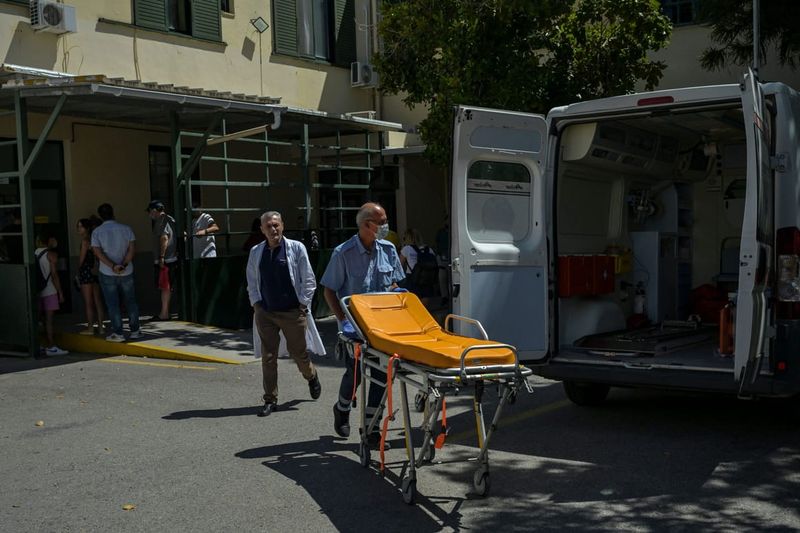
Health anxiety continues influencing travel choices, with Greece’s medical infrastructure raising concerns for some Americans. Rural islands have limited healthcare facilities, often requiring medical evacuations for serious conditions.
Insurance companies have increased premiums for Greek coverage, particularly for older travelers or those with pre-existing conditions. Stories about $50,000+ medical evacuation costs from remote islands have gone viral in travel communities.
Water quality issues occasionally surface in less developed areas, while pharmacies may not stock familiar medications. For health-conscious travelers or those with medical conditions, these factors present significant deterrents compared to destinations with more robust healthcare systems easily accessible to tourists.
11. Economic Factors Influencing Travel Choices

Rising inflation has hit American travel budgets hard, making Greece’s increasing prices particularly painful. The euro-dollar exchange rate has fluctuated unfavorably for Americans, effectively adding a premium to every purchase.
Budget travelers report spending nearly twice what they anticipated on basics like meals and transportation. ATM fees and foreign transaction charges create additional financial friction that doesn’t exist in domestic travel.
Many Americans are discovering their dollars stretch further in emerging European destinations like Bulgaria, Romania, and parts of Portugal. Travel credit card points also offer better redemption values in countries with lower demand, making Greece’s high-point requirements for premium experiences seem increasingly unattractive compared to alternatives.
12. Environmental Impact Awareness

Environmentally conscious travelers are reconsidering Greek vacations due to sustainability concerns. Water scarcity on many islands has reached critical levels, with some destinations importing water by ship during peak season.
Plastic pollution visibly affects even the most pristine beaches, particularly after busy tourism days. Conservation-minded Americans increasingly question the ethics of visiting destinations struggling with basic resource management.
Reports of coral damage from sunscreen and declining marine life in popular snorkeling spots have circulated widely in environmental circles. As sustainable travel gains importance, especially among younger Americans, destinations with stronger environmental protections and visible conservation efforts are gaining preference over those perceived as prioritizing tourism income over ecological health.
13. Preference for Less Traveled Destinations
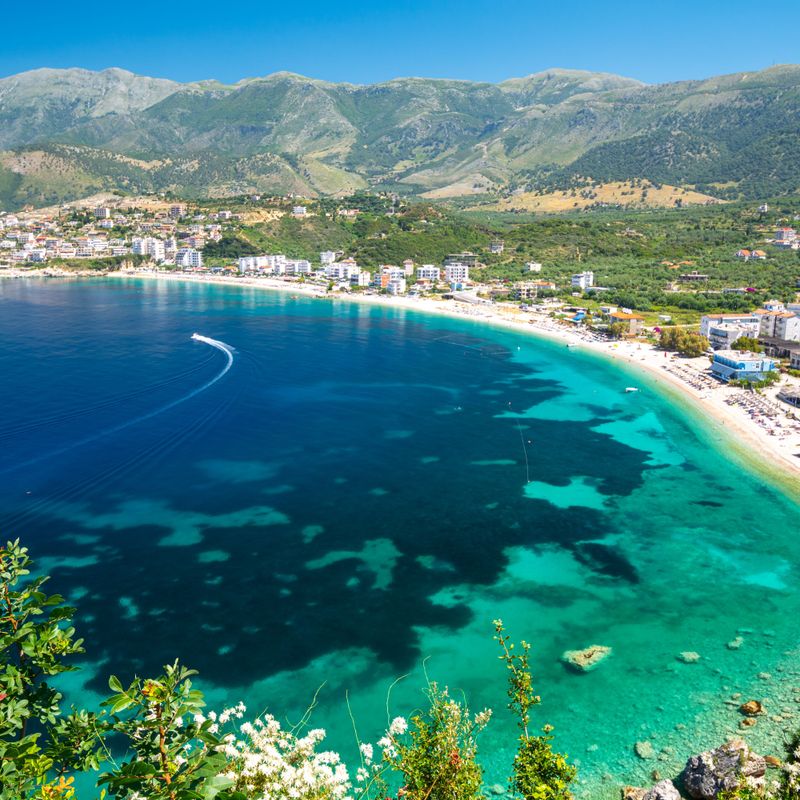
Social media has sparked interest in “alternative Greeces” offering similar aesthetics without the crowds. Places like Albania’s riviera and Montenegro’s coastal towns provide Mediterranean beauty at a fraction of both cost and visitor numbers.
Being the “first” among friends to discover an emerging destination carries more social currency than visiting well-documented Greek hotspots. Travel influencers have pivoted to promoting these alternatives, further accelerating the trend away from traditional Greek tourism.
Americans increasingly report seeking authentic cultural exchanges rather than manufactured experiences. Many travelers feel Greece’s most popular destinations have become too commercialized to provide the genuine connections with locals that they can still find in less touristed countries just beginning to develop their visitor infrastructure.
14. Concerns Over Infrastructure Strain

Greece’s aging infrastructure struggles to support peak tourism demands. Water pressure drops dramatically during high season, while electricity outages become commonplace on islands with insufficient power generation.
Waste management presents visible problems in many areas, with garbage collection overwhelmed during busy periods. Americans report unpleasant experiences with overflowing bins and associated odors in otherwise picturesque locations.
Internet connectivity – critical for remote-working Americans – remains unreliable outside major centers. Road quality varies dramatically, with some popular routes suffering significant deterioration. These practical considerations have pushed many travelers toward destinations with more robust and recently updated infrastructure better equipped to handle tourism volumes.
15. Desire for More Personalized Travel Experiences
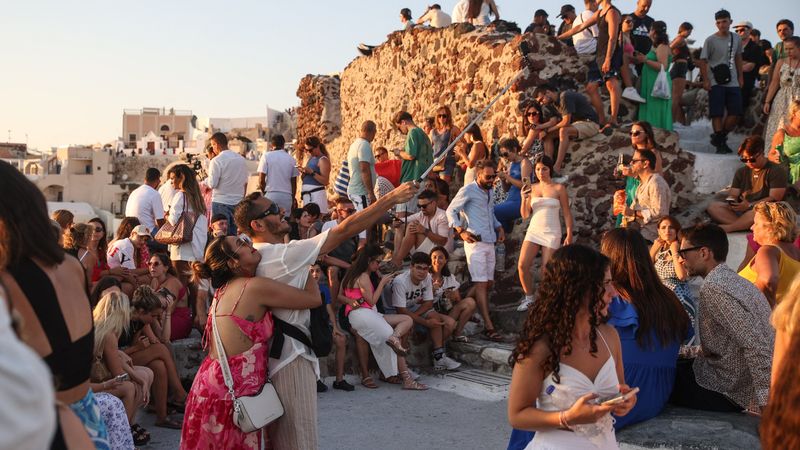
Mass tourism has diminished the personalized touch that once characterized Greek hospitality. Visitors to popular islands report feeling processed rather than welcomed, with interactions becoming transactional rather than genuine.
Americans seeking meaningful cultural exchanges find themselves in standardized experiences designed for maximum efficiency. Many restaurants now offer “tourist menus” with higher prices and adapted flavors rather than authentic local cuisine.
Travel forums buzz with recommendations for countries still offering the personalized attention Greece was once famous for. Croatia, Slovenia, and even parts of Turkey are frequently mentioned as alternatives where visitors feel treated as guests rather than walking wallets, rekindling the authentic hospitality experience that initially attracted travelers to Greece decades ago.
